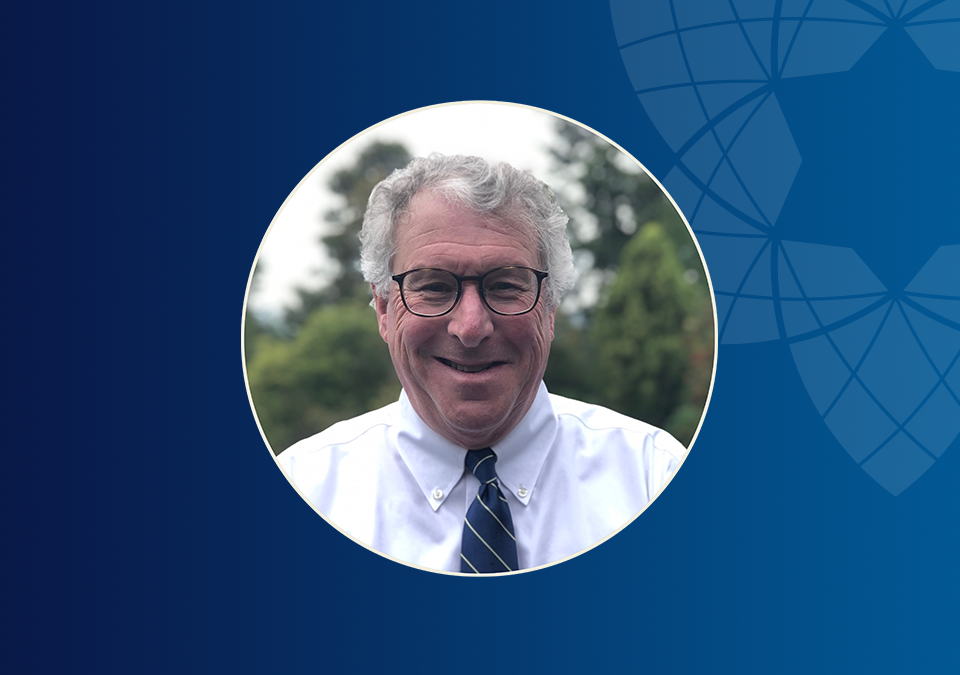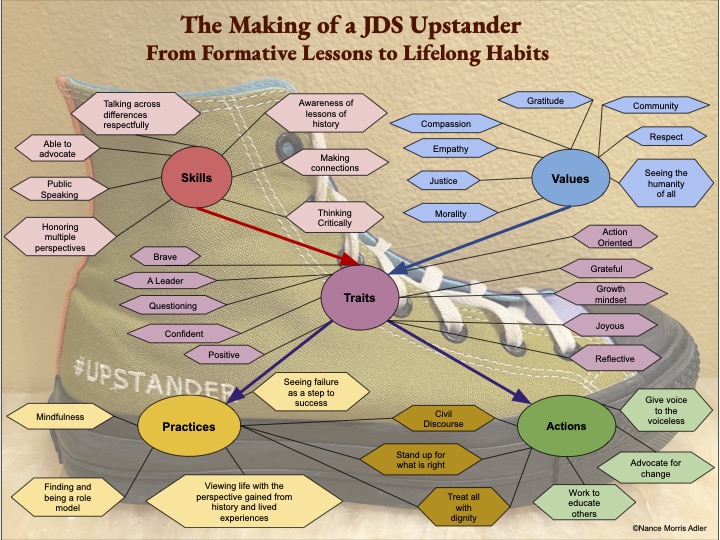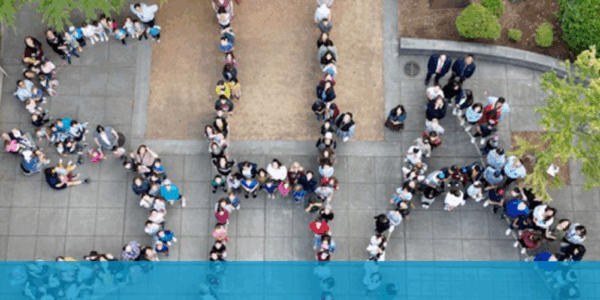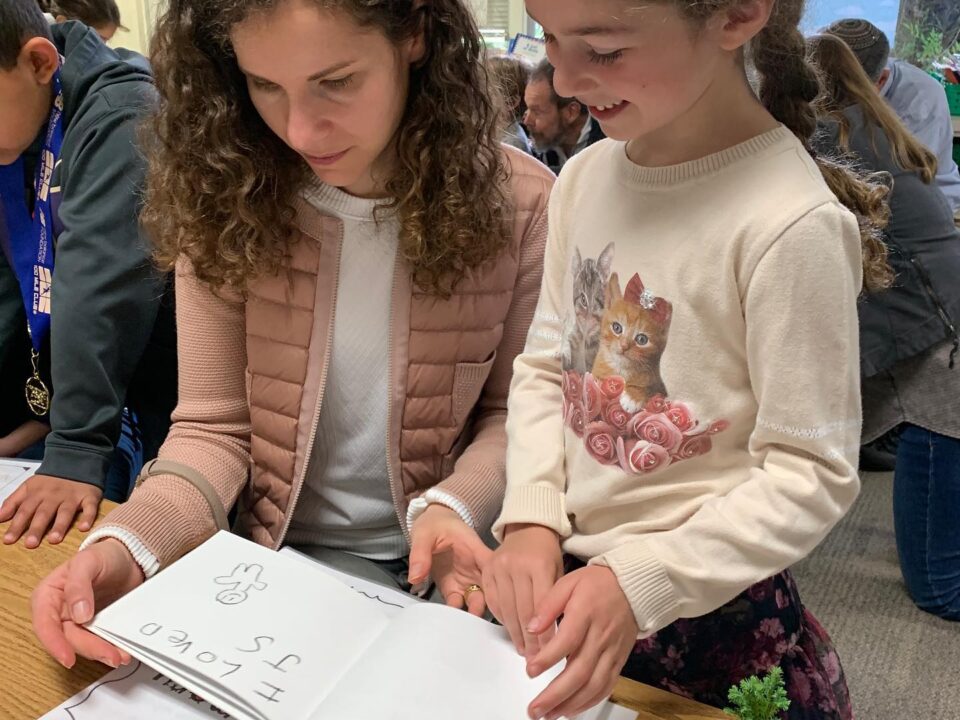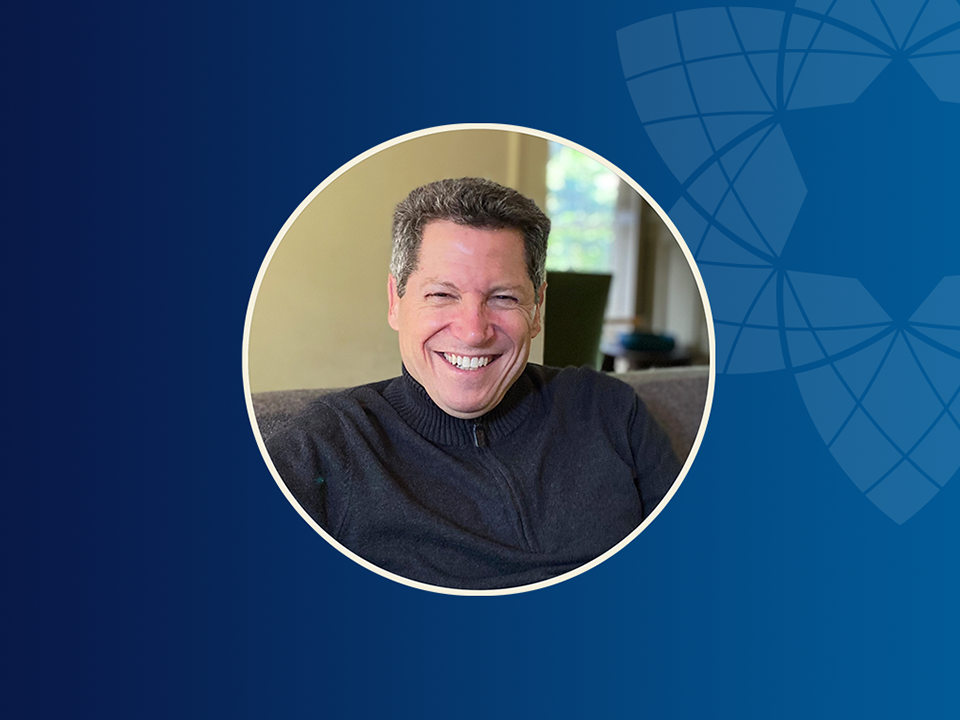
Samis Trustee Spotlight: Dana Behar
January 30, 2022
Game-Changing Tuition Support Announced for Seattle-area Jewish Day Schools
April 6, 2022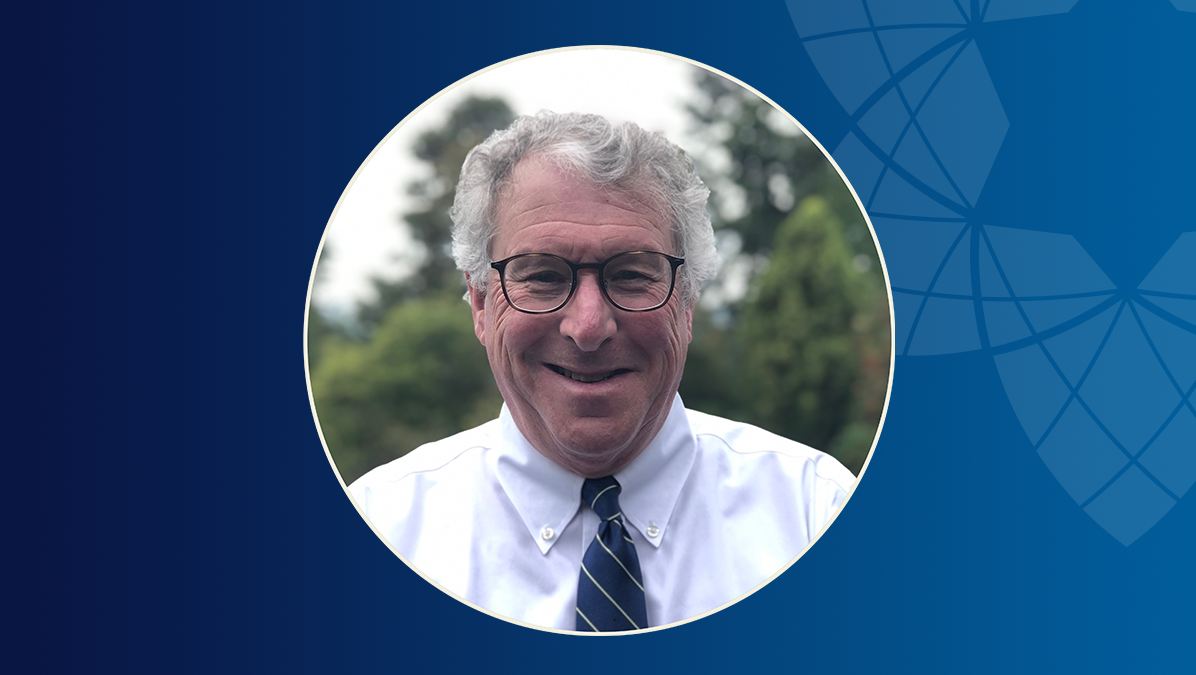
A conversation with Sam Israel’s great-nephew, tax aficionado, and proud Jewish communal leader, Greg Roer
Years of Service: 6
Committee (s): Executive Committee, Chair of Trusteeship & Governance Committee, Vice Chair of Finance and Audit, State of Israel Grants Sub-committee, and Day School Grants Sub-Committee
Did you have a personal connection to Sam Israel before joining the board? What is your connection, if any?
My only connection to Sam was that he’s related to me. I never met him. He is my grandfather’s brother. My grandfather was Jack Israel and his older brother was Sam Israel. They were both in the shoe business, but I never met him, so I didn’t have any one-on-one experience with him. My brother did go out to meet him one time on the Soap Lake farm, with a cousin of mine, Jack Israel, and I remember him telling me that Uncle Sam made them cut their hair before he let them come on the farm! That’s the only anecdote I have about him.
What’s the greatest story you ever heard about Sam?
The stories I obtained about Sam were mostly from reading his book. I learned mostly about how he had a very unique personality. He came across as very hard, dogmatic, unreasonable, not open to negotiation and very firm in his ways. But, in the end, he was the most generous person that the Seattle Jewish community had ever witnessed. I think the impact of his story is that when you judge someone, as is human to do, there is a possibility you may be wrong. The idea of not judging people to me is kind of talk without meaning, but it really just confirms that you just don’t know people. There are people that can do wonderful things, even though they may have very difficult personalities. In that sense, we’re fortunate here in Seattle. I guess my conclusion about Sam, the stories about him, and what I learned from him, is exactly that – to judge is human, but just know that you may not always be correct.
What was your path to joining the Samis Board?
Implicit in the question is that I had a direction to go to and that I was trying to get on the Samis board but that was not the case. In retrospect, I can define what the attributes were that led Samis to approach me. I think the main appealing attribute that I had was a unique and strong tax background. Besides having my own tax practice and dealing with high-net-worth individuals, international work, trusts and estates, I am also director of the graduate tax school. So, there was my tax expertise, but I know that one of the criteria for being on the Samis board is community involvement and I had a lot of that as well. I was USJ president, USY president, Seattle Hebrew Academy president, I was on the board of BCMH, one of the founders of Ohr Chadash, and I also spent a year in Israel. Ultimately, I have an incredible passion for what Samis is passionate about, which is education and Israel. That’s why I’m honored to be on the Board.
What is the most meaningful story, event, or experience you can recall related to your service on the Samis Board?
When Samis asked me to be on the board, I was just shocked and blown away because I had such a high regard for the Foundation. I didn’t realize how the attributes of Samis really aligned with what I feel very passionate about which is Israel and education. Meeting the people on the Samis board was quite an experience. They are very talented, interesting, passionate, good people. From the very beginning, they characterized the Foundation like a family, and I think it’s a very good characterization, because in many ways we share very similar values, but like all families we also have our ups and downs. There’s no such thing as a perfect family, and the only perfect families are the ones that are hiding things.
I’m also very happy with what I have been a part of accomplishing with other people on the board, which is setting up the donor advised fund, working on the S corporation tax aspects, and setting up the Emeritus board. I was also active as chair of the Trusteeship Committee, bringing on the wonderful new trustees we have, and with the Finance Committee, instituting annual reviews with the schools to presents their financial information and have an open discussion about it. I feel very proud about being a part of all those initiatives.
How does your personal Jewish journey relate to the Samis mission?
My father was a Holocaust survivor and that was an incredibly powerful event in our lives growing up. It is still even to this day. One of my sons said when he looks at Jewish people that were born in the 50s and 60s, he thinks “You all look like you’re studying for some World War II exam that you’re going to have to take before you die… you’re just so obsessed with studying that era.” I’ve read so many books on that era and it’s been incredibly impactful in my life. What occurred to the Jews in WW II is just so outside the realm of reason, it’s unbelievable. I’ll also add that there was certainly something I observed growing up, in that my dad suffered from post-traumatic stress disorder from his experiences.
I went to Ezra Bessaroth as a young child because we lived in Seward Park and it provided a connection to my Sephardic background. Before that we were members of Herzl Ner Tamid, which I loved. I was in USJ and USY and I went to Camp Solomon Schechter for years where I was even a camper and then a Mahon. I still have friends to this day from my Camp Solomon Schechter experience. I also spent a year in Israel studying first at the Hebrew University in Jerusalem for a very brief period of time, and then I went to a Yeshiva, which was a very impactful, strengthening and eye-opening experience for me.
All my kids went to Jewish day school, Jewish high-school and Yeshiva University and Stern College. Education has always been a very high priority to Dorothy and me, and I’ve seen from their experiences how it has tied them to the larger Jewish community where they live on the East coast. I’m really happy for that. To see their connections and the size of the communities there and that their kids are going to Hebrew schools, and we just couldn’t be happier. Judaism was always a central part of my life. It’s what I’m passionate about, and I’m very proud to be Jewish.
Which area of the Foundation’s philanthropy most resonates with you and why?
I would say that all our areas of philanthropy are somewhat interconnected. But they are also all different. What resonates with me, having been the past President of the Seattle Hebrew Academy – my wife Dorothy was also past President of SHA – is day school education. I believe it had the biggest impact on our kids in terms of their commitment to Judaism and their life today. Teen Israel Experiences would be second for me because I know from being on the Samis board the impact that trips to Israel have on people. It is a life changing experience that makes them feel very committed to Israel and the Jewish people. Especially in today’s environment, with university’s supporting every diverse group on campus except Israel, its particularly important for teens to have an Israel experience. I think that going to Israel, supporting causes in Israel, and doing whatever we can do to strengthen Israel is very important. I can’t imagine, G-d forbid, life without having Israel.
Experiential Jewish education is a kind of new area for me although I went to Camp Solomon Schechter and I went with the Youth Zionist World Foundation on a trip to Israel. All those experiences were formative for me. I like these types of programs because they bring people in, and foster commitment to Israel and Judaism. It’s about the awareness and the commitment to and love for Israel, and Judaism. Whatever we can do to help to support those sentiments – it’s probably worth it.
How has serving on the Samis Board impacted your perspective on philanthropy and the Jewish community?
How complex it is. As a tax accountant, I deal with a lot of high-net-worth individuals. There was a time when one would think, “Oh, I’d love to be worth 100 million dollars” but now I see what comes with that if you are philanthropically motivated. Directing where that money would go is a full-time job. And making sure that it is put to use in a way that accomplishes what your priorities are is challenging. You can just dump money on a big organization and feel good about it, like the Red Cross, or Feed the Hungry. That’s great and wonderful, but when you have the kind of resources we have and you’re in Seattle, working on specific areas both in Washington State and in Israel, it takes a lot of work. You really need a wonderful staff like we have at Samis – I’m thrilled with the staff we have. It takes a lot of work to drive those dollars in a way that has an impact and that’s consistent with our mission.
Now we are also wanting to look at other ways we can impact the community that aren’t only about granting dollars, but also conducting research and supporting convenings around local day school education. Without the dollars we wouldn’t have the impact we have in other areas, so I’m not fooling myself to think that the community would listen to us if they didn’t have access to our resources. But the extent to which we’re going to gather information to help make those decisions, whether it’s utilizing organizations like Prizmah or any other kind of resources, is really indicative of how complex it is to identify what the issues are. Whether it’s affordability, quality of education, or enrollment in our schools, identifying the issues and trying to address those issues is not easy. It takes a lot of time and research. That has been kind of eye opening for me.
It’s not an easy process and it comes with the downside that even with the best intentions, you make mistakes. For example, people could say that Samis supported opening too many schools. Even with the best intentions, you may have not done the right thing. But that’s what we call learning and I think we can learn from those past decisions. I heard this anecdote one time about somebody who was working for a very large company like GE, and he made a decision that ended up being a $12 million mistake. He went to the CEO, and he said, “I know I’ve got to quit now given my mistake,” and the CEO responded “I just spent $12 million on your education. You’re not going anywhere.” So, you learn from the past, and I think that’s what I’ve seen with Samis. We are now open to change for the future.
Where do you envision the Seattle Jewish community ten or twenty years from now?
This is a question that is impossible to answer, and the answer is whether you’re a pessimist, an optimistic, or realist. Right now, if you flip the question and say, “Where have we come in the last 10 and 20 years?” the trajectory has not been positive. We have smaller schools, smaller enrollment, and at the same time the Jewish population has grown. Whereas I’m sure if you would have asked that question 10 years ago everybody would have thought that we would be like Teaneck, New Jersey by now.
I don’t think that Seattle is ever going to be a New York, Los Angeles, or Teaneck. We won’t be a major mover in Jewish education and I don’t think Samis can do anything about that. That’s just the way it is. But I think in terms of maintaining what we have and supporting a city that stays on top of trends regarding education and Israel and keeping our Jewish institutions strong, we can do it. I think Seattle will remain a city where Jewish people can come, feel a part of the community, educate their kids, and know that their kids will continue in the Jewish faith and with Jewish values.
Any little event or decision made can affect your trajectory, so you can’t really say if “I did this, what would my life have been?” because there’s just so many totally different possible trajectories. Winston Churchill actually wrote a book on that topic, which I thought was brilliant. 20 years from now I’m just hoping for a continuation of Jewish education, trying to continue to address any issues, and keeping Seattle a place with Jewish people can retain their values, obtain an education, and love the State of Israel.

